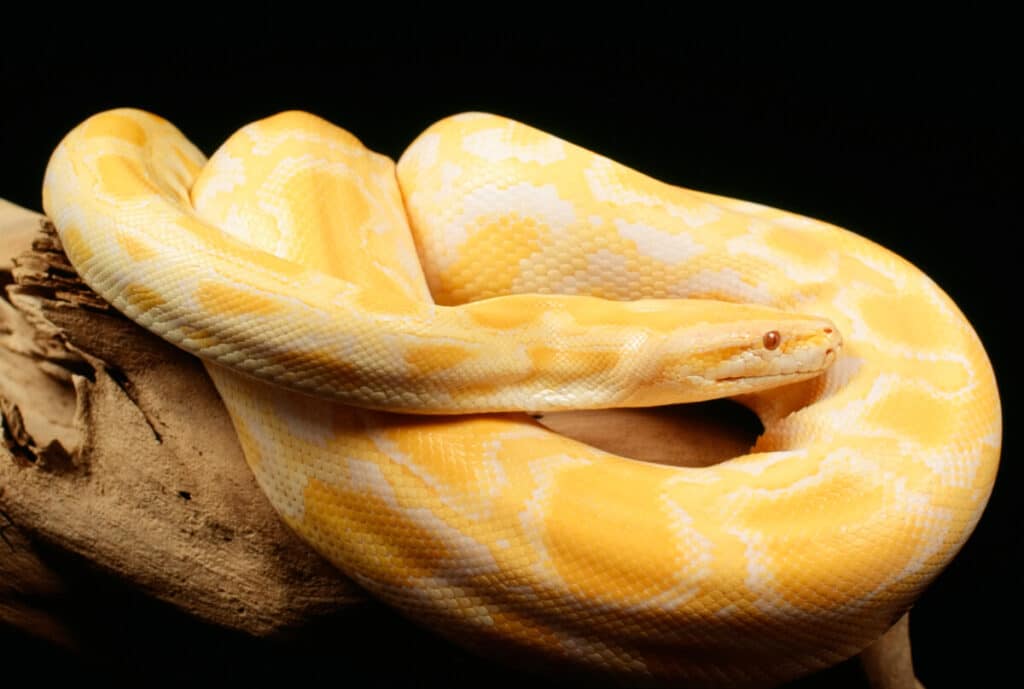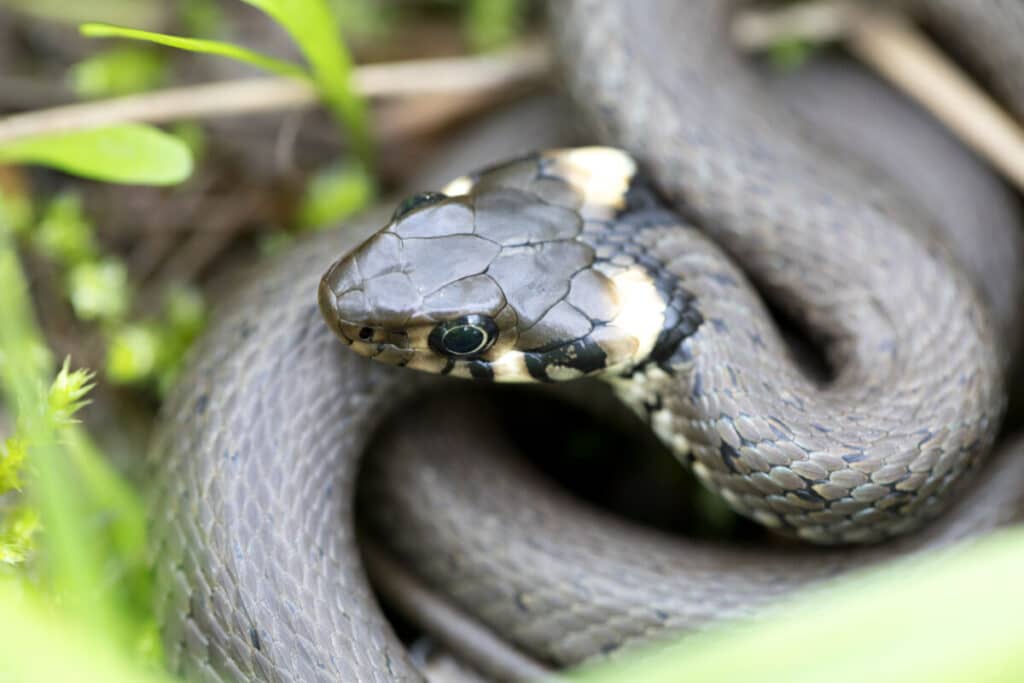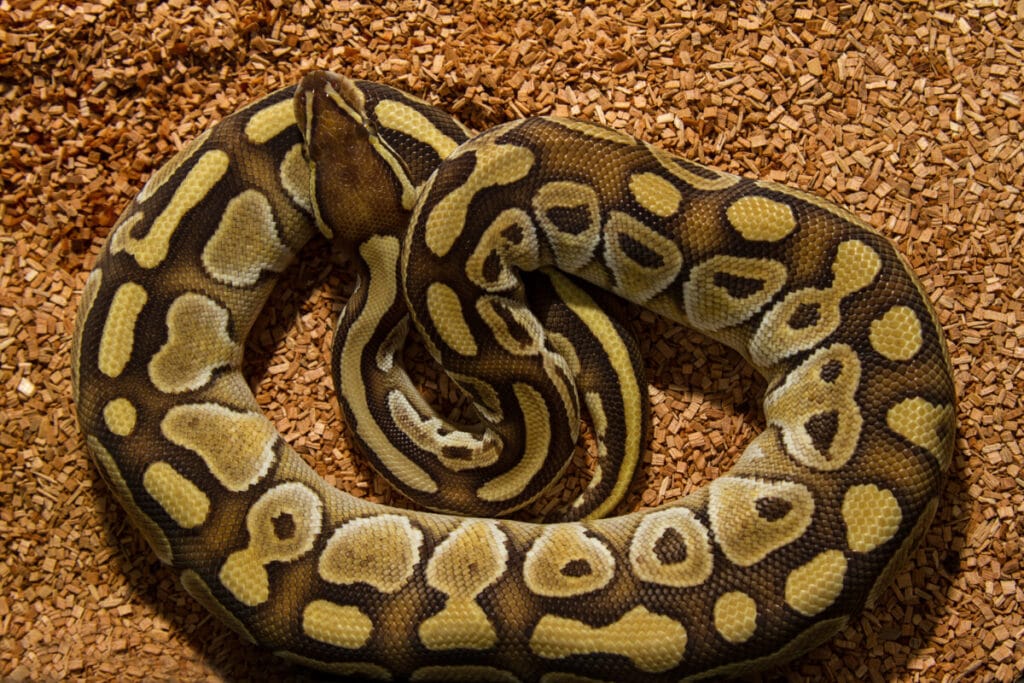
Death is hard enough to deal with, but when it’s completely sudden, it’s not only difficult, it’s confusing. Why would a seemingly healthy pet snake suddenly bite the dust for no apparent reason? Perhaps the snake wasn’t as healthy as you thought or maybe there’s something else going on that you were unaware of.
There are a few reasons why a pet snake might suddenly die. If you have just experienced the loss of your own pet snake, you are doubtless wondering what could be behind it. You’re in luck because we have several of the most common causes of sudden death in pet snakes right here!
1. Insufficient Nutrition
A common cause of death in snakes is lack of nutrition and/or poor eating habits (occasionally sometimes choking as well). When snakes aren’t getting the right kind of nutrition or they simply aren’t eating enough food, it will quickly cause them to deteriorate. This is a tough situation to identify because snakes don’t always eat on a seemingly regular schedule.
For this reason, you need to be doubly careful about what and when you feed your reptile. Feeding your snake live rodents is not recommended because sometimes rodents can cause harm to a snake in order to protect itself. Consult your vet to know what your snake’s diet and feeding schedule should look like (it will be slightly different for different species).
2. Stress & Depression
Stress can be a major cause for concern in a snake and can be caused by several different things. For example, if you have multiple snakes and you’re housing them together, this could start to cause stress in any of your reptiles. Most snakes live alone when out in the wild and living with a bunch of other snakes can cause severe stress.
When a snake is stressed out, it can lead to depression which then leads to a snake not wanting to eat as well as other depressive symptoms. It might be hard to notice these at first which is why when the snake dies, it might seem sudden and without cause. So, consider keeping your snakes in separate habitats and watch carefully to make sure it isn’t showing signs of depression.
3. Improper Temperature
Pretty much everyone knows that reptiles are cold-blooded and therefore require carefully balanced levels of warm and cold in the snake habitat. Now, don’t make the mistake of thinking that an imbalanced temperature in a snake habitat will merely cause discomfort. If a snake’s tank is too cold, it could cause severe digestion issues and even cause problems with the reptile’s immunity.
Most snake tanks have self-regulating temperature gauges. However, you should still practice good habits and regularly check to make sure that the temperature is always at an appropriate level. You can talk to a vet if you have any questions regarding what that temperature should be.
4. Old Age

Another possibility is that your snake has simply gotten old and was ready to leave the world. Most snakes living in domestic habitats can live as long as 25-30 years if they’re well taken care of. Now, keep in mind, that this differs slightly by snake species as well as their living conditions. Snakes should live for a pretty good chunk of time, and when that time is over and they die, it’s probably just because they’ve lived a good life and are ready to be done.
5. Fatal Disease(s)
Sometimes diseases are the underlying cause of a snake’s death. Some diseases, such as mouth and scale rot, can be pretty easy to identify, but other times, it’s tough to tell that anything is wrong. Things like scale rot can sometimes be treated, but a lot of diseases that affect snakes can be pretty instantly fatal and incurable.
Inclusion body disease (IBD) is one disease that very commonly infects snakes. It is a serious virus that cannot often be cured because it has infected the snake for too long. Symptoms are not immediately present, and by the time they are, it is most likely too late. If you have had to handle a snake with IBD, you need to make sure to wash your hands before handling any other snakes. IBD is highly contagious.
Similarly, you should just be careful in general when handling snakes, especially if they’re sick. Snakes and other reptiles can carry diseases that infect humans and can sometimes be fatal. Wash your hands thoroughly before and after handling your reptile.
6. Unclean Living Conditions
Sometimes an unclean tank can cause major problems with your snake’s health and ultimately cause death. This one is tricky as well because you may not be aware that the tank is not clean enough at first. A buildup of snake feces, urine, old food, and dust in the tank can get to the point where it starts to spread bacteria throughout your snake’s habitat.
if you are not cleaning the tank regularly and the snake lives in conditions like these, it will probably die before too long. That said, you need to make sure you’re cleaning the tank often enough to keep it a healthy environment for your snake.
7. Toxins
When you do clean your snake’s tank, however, caution must be exercised. If you are using bleach or chemicals of any kind, residual fumes could kill a snake pretty quickly. Likewise, if you have recently finished repairing or building a snake habitat, there is likely to be some toxic residue left in the tank.
For this reason, you will need to air out the tank considerably before using it again. It’s advisable to leave it out for a week if not longer to get some air. This should allow any remaining fumes and toxins to exit the area before you put your snake back inside it.

8. Parasites
Parasites have been labeled as a major cause of sudden death in snakes. Thankfully, however, parasites are a bit easier to diagnose and treat before it becomes too late. Ticks and mites are two of the most common parasites that affect snakes. They are likely to be found congregated around your snake’s eyes, nose, and sometimes on its back where they take the form of tiny black and red spots.
If you start to notice this along with bloody and mucusy discharge from your snake, you probably ought to get it in to see the vet as soon as possible. Again, if you quickly diagnose this problem, there’s a good chance you’ll be able to save your snake.
